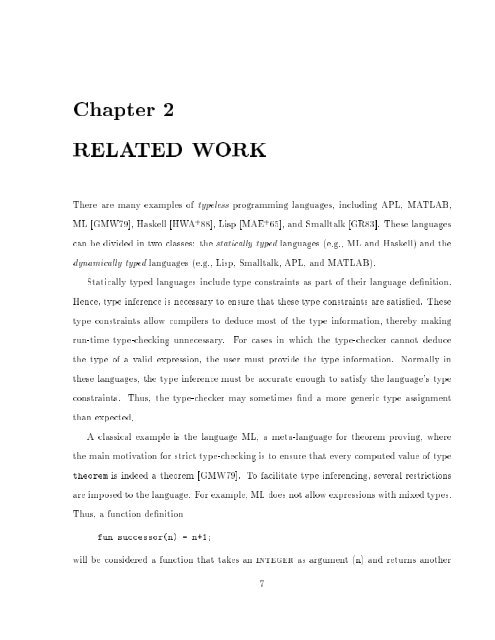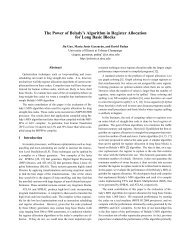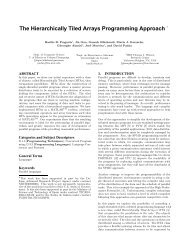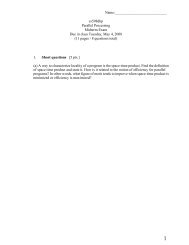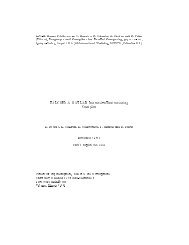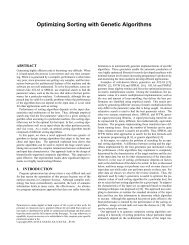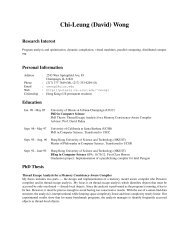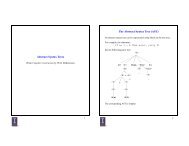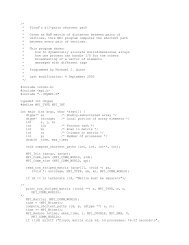COMPILER TECHNIQUES FOR MATLAB PROGRAMS ... - CiteSeerX
COMPILER TECHNIQUES FOR MATLAB PROGRAMS ... - CiteSeerX
COMPILER TECHNIQUES FOR MATLAB PROGRAMS ... - CiteSeerX
Create successful ePaper yourself
Turn your PDF publications into a flip-book with our unique Google optimized e-Paper software.
Chapter 2<br />
RELATED WORK<br />
There are many examples of typeless programming languages, including APL, <strong>MATLAB</strong>,<br />
ML [GMW79], Haskell [HWA + 88], Lisp [MAE + 65], and Smalltalk [GR83]. These languages<br />
can be divided in two classes: the statically typed languages (e.g., ML and Haskell) and the<br />
dynamically typed languages (e.g., Lisp, Smalltalk, APL, and <strong>MATLAB</strong>).<br />
Statically typed languages include type constraints as part of their language denition.<br />
Hence, type inference is necessary to ensure that these type constraints are satised. These<br />
type constraints allow compilers to deduce most of the type information, thereby making<br />
run-time type-checking unnecessary.<br />
For cases in which the type-checker cannot deduce<br />
the type of a valid expression, the user must provide the type information. Normally in<br />
these languages, the type inference must be accurate enough to satisfy the language's type<br />
constraints. Thus, the type-checker may sometimes nd a more generic type assignment<br />
than expected.<br />
A classical example is the language ML, a meta-language for theorem proving, where<br />
the main motivation for strict type-checking is to ensure that every computed value of type<br />
theorem is indeed a theorem [GMW79]. To facilitate type inferencing, several restrictions<br />
are imposed to the language. For example, ML does not allow expressions with mixed types.<br />
Thus, a function denition<br />
fun successor(n) = n+1<br />
will be considered a function that takes an integer as argument (n) and returns another<br />
7


